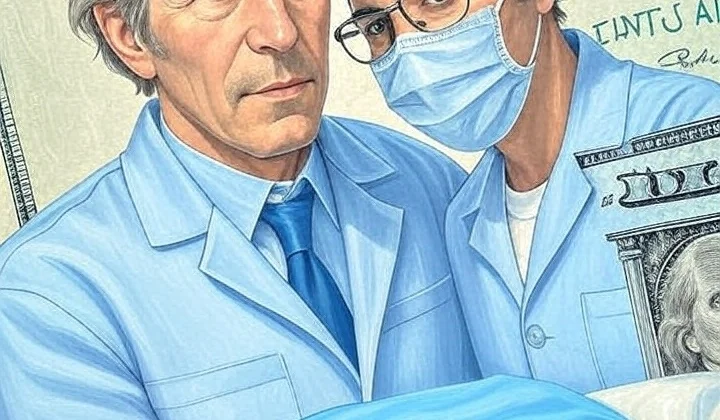
|
Getting your Trinity Audio player ready...
|
Much like education, we spend increasing amounts on health care with worse results. Life expectancy continues to grow, but that has more to do with the development of specialized medications and procedures rather than where much of the money goes.
In trying to make the case against the big congressional spending bill and Medicaid reductions, the New York Times unintentionally touches on the problem.
“For years, the United States labor market has been undergoing a structural transformation. As jobs in manufacturing have receded, slowly but steadily, the health care industry has more than replaced them.”
The change has been particularly visible over the past year, during which health care has been responsible for about a third of all employment growth, while other categories, like retail and manufacturing, have stayed essentially flat.
But where manufacturing actually produced things of use, many of those ‘health care’ jobs are bloat. Where manufacturing added value to the private sector, much of this is funded by the public sector. And the bloat is eating our economy alive “going from 9 percent of the total workforce in 2000 to 13 percent today.”

“As much as politicians may focus on factory jobs, long idealized as the kind of work that could support a comfortable life for people without advanced degrees, health care is now playing that role for more people. The field has seen much faster wage growth than non-health care occupations. Unlike in the broader economy, average pay increases have moved particularly quickly for middle-skilled roles such as nurses and physician’s assistants, while salaries for doctors have increased only moderately in percentage terms.”
In short, we’ve replaced factory jobs with SEIU jobs for all sorts of people who scamper around hospitals and offices while contributing next to nothing to health care outcomes. There are multiple tiers of nurses (all in Democrat unions and donating to their candidates), assistants and (which the New York Times) doesn’t mention, administrators, who account for something like a third of all health care spending.
Doctors are now struggling to make the economics work.
Is this good for patient health care outcomes? You tell me. It’s certainly good for ensuring that you fill in the same paperwork three times, for ensuring that before you see a doctor, you have to be condescended to or insulted by three SEIU members who can barely read and write, but have grandiose titles and salaries.
Factory workers are being replaced by immigrants who got through a program and now have a title and are a drain on the system.
The plan is to continue shifting patient care away from doctors and to union members who will shortly just ask the medical version of ChatGPT what to do. Which really means that they’re at best are getting paid $82,000 a year to follow AI directions. And if AI gets it wrong, bad things happen. With AI, we have coders who don’t know how to code, writers who don’t know how to write and soon ‘medical professionals’ who won’t be able to find your pulse without following the guidelines on the screen.
But they’ll also make 15% and then 20% of the economy unless we have an actual recovery.


I certainly agree there is plenty of administrative bloat in healthcare, but worse, there is plenty of outright fraud. For example the gimmick where some states tax doctors and hospitals, then reimburse them with Medicaid payments paid for mostly by the federal government, and pocket the net for state spending on other things. Hopefully the BBB will address this technically-legal financial fraud by blue states.
BUT – I strongly disagree with your take on medical assistants. Lately I’m getting most of my primary care from a physician’s assistant who is extremely knowledgeable, always available, and energetically engaged. He knows when to consult the doctor and when to expeditiously adjust prescriptions or set up appointments with specialists. He’s saving our health system tons of money because a high-paid doctor is not required to waste his time handling my basic questions and issues. And I don’t have to wait weeks for an appointment to open up with my doctor, I’m getting seen within a day or two of contact, sometimes on the same day I call.
Someone once said: “If you think healthcare is expensive now, wait until it’s free.” And of course we all know that dems (and RINOs) want free healthcare.
The insurance and healthcare industry pigs have an insatiable appetite for tax payers dollars and politicians love feeding the pigs because they get financial kickbacks for steering tax payers dollars into those industries.
Heads they win, tails we the tax payers lose. That’s just the way it was, is and will always be and there’s nothing we the people can do about it.
The solution is simple. This is not sustainable and the system will collapse.
A perplexing conundrum of great practical significance. Worries me daily.